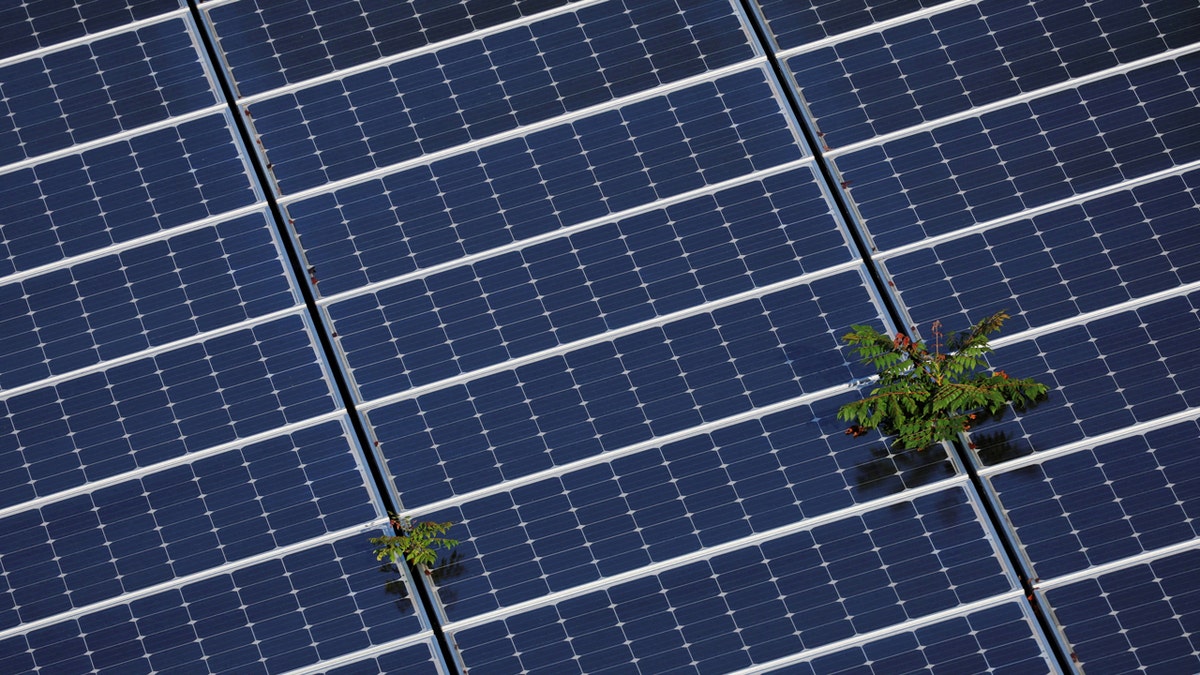Energy authorities in the United States are currently reviewing the potential threat presented by Chinese-manufactured devices that are crucial in renewable energy infrastructure. This action comes after unidentified communication equipment was discovered inside some of these devices, according to two individuals who are knowledgeable about the situation.
Power inverters play a vital role in linking solar panels and wind turbines to power grids worldwide. They are primarily manufactured in China and are also utilized in batteries, heat pumps, and electric vehicle charging stations.
Despite being designed to enable remote access for updates and upkeep, utility companies implementing these inverters typically incorporate protective measures, such as firewalls, to block direct communication with Chinese entities.
Chinese companies are required by law to cooperate with China’s intelligence agencies, giving the government potential control over Chinese-made inverters connected to foreign grids, experts said.
While Huawei decided to leave the U.S. inverter market in 2019 – the year its 5G telecoms equipment was banned – it remains a dominant supplier elsewhere.
Huawei declined to comment.
In Europe, exercising control over just 3 to 4 gigawatts of energy could cause widespread disruption to electricity supplies, experts said.
The European Solar Manufacturing Council estimates over 200 GW of European solar power capacity is linked to inverters made in China – equivalent to more than 200 nuclear power plants.
At the end of last year, there was 338 GW of installed solar power in Europe, according to industry association SolarPower Europe.
“If you remotely control a large enough number of home solar inverters, and do something nefarious at once, that could have catastrophic implications to the grid for a prolonged period of time,” said Uri Sadot, cybersecurity program director at Israeli inverter manufacturer SolarEdge.
Strategic Dependencies
Other countries such as Lithuania and Estonia acknowledge the threats to energy security. In November, the Lithuanian government passed a law blocking remote Chinese access to solar, wind and battery installations above 100 kilowatts – by default restricting the use of Chinese inverters.
Energy minister Zygimantas Vaiciunas said this could be extended to smaller rooftop solar installations.
Estonia’s Director General of the Foreign Intelligence Service, Kaupo Rosin, said the country could be at risk of blackmail from China if it did not ban Chinese technology in crucial parts of the economy, such as solar inverters.
Estonia’s Ministries of Defense and Climate declined to comment when asked if they had taken any action.
In Britain, the government’s review of Chinese renewable energy technology in the energy system – due to be concluded in the coming months – includes looking at inverters, a person familiar with the matter said.
In November, solar power inverters in the U.S. and elsewhere were disabled from China, highlighting the risk of foreign influence over local electricity supplies and causing concern among government officials, three people familiar with the matter said.
Reuters was unable to determine how many inverters were switched off, or the extent of disruption to grids. The DOE declined to comment on the incident.

Plants grow through an array of solar panels in Fort Lauderdale, Florida, on May 6, 2022. (Reuters/Brian Snyder/File Photo)
The incident led to a commercial dispute between inverter suppliers Sol-Ark and Deye, the people said.
“Sol-Ark does not comment on vendor relationships, including any relationship with Deye, nor does it have any control over inverters that are not branded Sol-Ark, as was the case in the November 2024 situation you referenced,” a Sol-Ark spokesperson said.
Deye did not respond to requests for comment.
The energy sector is trailing other industries such as telecoms and semiconductors, where regulations have been introduced in Europe and the U.S. to mitigate China’s dominance.
Security analysts say this is partly because decisions about whether to secure energy infrastructure are mostly dictated by the size of any installation.
Household solar or battery storage systems fall below thresholds where security requirements typically kick-in, they said, despite now contributing a significant share of power on many Western grids.
NATO, the 32-country Western security alliance, said China’s efforts to control member states’ critical infrastructure – including inverters – were intensifying.
“We must identify strategic dependencies and take steps to reduce them,” said a NATO official.

















